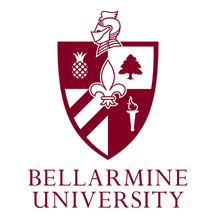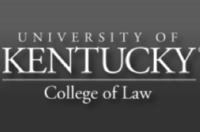A friend, Don Marcum, asked about the possibility of a National Primary, and wondered if I had any thoughts on the matter.
As luck would have it, I have quite a few ready-made thoughts from a column I wrote 15 years ago when people cared about what I had to say about such things.
It was my first few months as KY’s newly elected secretary of state and a group of us were being interviewed on C-SPAN about the presidential primary system. Without much thought I proposed consideration of a National Primary….which went over like a lead balloon (aimed to land on my detractors!). Some of those who spoke up were professional election administrators and analysts who were well versed in the virtues of our current system not the least bit interested in considering new alternatives. And they made some good points.
But on the way home the more I thought about it the more I felt there was something to this idea…..And, I’ll admit, I was a little irked and challenged by the swift and impassioned rebuke I received and wanted to make a sensible case for a National Primary and prove it wasn’t “a crazy idea” as one commentator suggested.
I have dug up the article and post it below:
Kentucky’s Voice Would be Heard in a National Primary
Apart from casting a vote for president in the general election, it would seem the second most important vote American voters can cast is for their party’s presidential nominee.
However, due to a conglomeration of flaws in the presidential nominating system, Kentuckians and voters in more than 30 other states were disenfranchised from this opportunity in 1996.
On May 28, hundreds of thousands of Kentuckians voted in the May primary. Although their party’s presidential candidates were at the top of the ballot (seven Republicans and two Democrats), their votes were meaningless because more than two months ago both parties had already secured enough delegate votes for their nominee.
The key problem with the current presidential primary system is called
frontloading. Frontloading occurs when a small number of states holding primaries and caucuses early in the campaign season deliver the required number of delegates for a party candidate’s nomination before the remaining states have an opportunity to vote.Kentucky is one of the last six states to vote’for a presidential party nominee, making it unlikely that Kentucky’s needs and votes will ever be of interest to presidential candidates of either party during the primary.
Under the current process, candidates for president begin raising millions of dollars up to two years before their party’s convention. In February, Iowa holds the first caucus and New Hampshire holds the first primary. Candidates deluge both states with weeks of flesh pressing, coalition building and money flooding the airwaves.In 1996, Republican presidential candidates spent over $100 million in New Hampshire and Iowa alone. This strategy left Steve Forbes as the only candidate capable of waging a real campaign in any of the remaining 48 states.
The candidates realize whoever fares best in these two small states (totaling a meager 1.5 percent of the nations’ population) will emerge as the perceived front-runner. That means massive attention (Time and Newsweek covers), easy fund raising and powerful momentum heading into the first few rounds of primaries. If a candidate fares poorly in these two states, there is little hope for political resuscitation.
In short, Iowa, New Hampshire and a few other early primary states have become surrogates for selecting presidential party candidates for the rest of our very diverse nation. Consultants, pundits, politicians, and most important, voters find this system patently unfair. As former candidate Lamar Alexander described it, “I felt like I was rock-climbing in the dark for two years to get a chance to shoot one three-point jump shot.”
The suggestion is, although imperfect, if the process “ain’t broke, don’t fix it.”
Interestingly, virtually all agreed that a national primary would be a huge mistake. This approach supposedly would take power away from the parties and allow Congress to require a single national primary in every state during late May in each presidential election.
I was the lone supporter of a national primary. First, it would bring the equity and a shorter campaign season sought by the first two proposals. Dividing the country into four regions and holding monthly primaries would require Kentucky to hold a special election three of every four presidential primaries at a cost to the state of over $1.5 million per special election. Moreover, as occurred when Kentucky participated in the early Super Tuesday primary in 1988, competing with larger
states that are able to deliver more delegates, Kentucky would receive little to no attention in three of the four rotations.Many voters, as do politicians, complain of campaign burnout. The political process (fund raising, advertising, polling and speech giving) has supplanted real political leadership and substantive political activity under our current system. A national primary could by law condense the campaign season to just three or four months.
Opponents of national primaries argue this eliminates the vital winnowing process. To the contrary, I believe there would be a natural winnowing process as weaker candidates would fall by the wayside due to lack of personal or ideological appeal and lack of campaign funds.The media would also be running constant horse race polls and the parties more than ever would coalesce to implore weaker candidates to drop out and galvanize behind the party’s best and most viable candidate.
That certainly happened this year with Bob Dole. The only
differences would be that polls would replace early primaries
and the entire country could participate in the election process.Additionally, voters would have ample time to make up their minds by watching numerous issue-oriented national debates instead of a few weeks of shameless pandering to the narrow interests of a few states. And retail politics will be alive and well enough to convince us that candidates haven’t lost the human touch.
The most serious concern of having a national primary is that the victorious candidate may only win by a plurality. Although national party and state party leaders would go to great lengths to prevent this, it already occurs in the current primary system. Bob Dole rarely ever received more than 35 percent of the vote in the early winner-take-all states. And because many were special elections, only 12-25 percent of eligible voters turned out.
How can anyone argue this is a mandate or a majority?
One option is a run-off between the top two candidates.
Another much more appealing option is to allow the winner between the top two candidates to be selected by nomination at the party conventions on a state-by-state delegate basis.
That would certainly restore integrity to the party conventions. Party conventions once were nominating institutions. They have since devolved in to a circus-like gathering in which nominees are merely ratified.
Finally, I believe a national primary would strengthen, not weaken, our two party system. Nothing has fractured the parties or caused more public frustration than the venomous interparty bickering witnessed in the current primary process.
Now,more than ever, voters are calling for an independent third party candidate. A presidential primary would energize both parties at the state and national levels and stimulatemore public interest and greater voter turnout.
However, because both national parties got their candidate of choice selected early this year, it looks like the “if it ain’t broke, don’t fix it” approach will prevail for now. This means that if the next presidential election, larger states will begin to take matters into their own hands.
California,which moved up this year from June to March, is already threatening to be third in line in the next presidential primary. It is fair to assume that larger states such as Florida, Pennsylvania, Texas and others will seek earlier primary dates as well to blunt the impact of New Hampshire and Iowa.
In fact, every sizable state will be jockeying for earlier positioning and attention if nothing is done. If this is the inevitable prospect of neglecting to fix the problem now, it will unfortunately be a long time before Kentucky and many other states get to really vote for their party’s presidential nominee.

















Leave a Reply